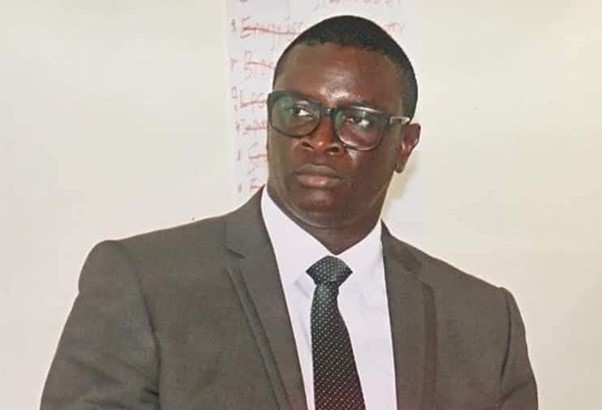By: Christian Conteh
Lawyer M. Robertson Roberts has made it unequivocally clear that the country’s Independent Electoral Commission (IEC) lacks the locus standi to interpret the constitution.
He was responding to an article written by Lawyer Lamin J. Darboe and posted on The Fatu Network. The article was titled ‘The Momodou Sabally National Assembly Nomination Saga: Sad but Lawful’.
According to M. Robertson Roberts Esq, the fact of the matter is that the law is not static nor is it monotonous. Hence, it is subjected to various interpretations. It is for this reason that where there is ample dissenting voice in a particular judgement, it is put to a vote and the majority decides.
“Many jurists and scholars have opened debates as to whether it is a matter of law or a matter of majority. The truth is, that for now, such matters are both of law and majority because no matter the brilliance of the dissenting judgement and or opinion if the majority does not decide on it, it stays where it is as a dissenting opinion and not the substantive judgment,” he said.
He expressed that he is however unmoved in his position that the Returning officer had no legal authority to interpret section 90(1) (e) of the 1997 constitution and reject Momodou Sabally.
“Brilliant article by Lamin J Darboe as always. However, I do not believe that any legal mind is questioning the authenticity and or legality of Section 90(1)(e) of the 1997 Constitution of The Gambia. What is being questioned and what has caused an electrifying debate is whether or not, provided under law is the legal authority of the IEC to make constitutional interpretations which in my belief solely resides with the courts and this is where Gambian lawyers are divided and hence the public debate,” the learned counsel said.
“As to whether the IEC has the competence to interpret section 90 (1) (e) of the Constitution at its level, I merely state it is performing a legally permitted intermediate gatekeeping function which can only be conclusively ratified by a competent court where its perspective is contested. However, the Janneh Commission Report and its accompanying White Paper are public documents available to the IEC and it can act upon them where deemed necessary.” -Lamin J Darboe
From the above quotation from the article Lawyer Roberts notes It seems that Lawyer Lamin Darboe agrees absolutely that the IEC does not have any power or authority to interpret section 90(1)(e) of the constitution. However, Lawyer Darboe proceeded to give his personal opinion and make excuse for the IEC by stating that
” I merely state it is performing a legally permitted intermediate gatekeeping function which can only be conclusively ratified by a competent court where its perspective is contested.”
Now, the question to be determined he notes is whether the law permits for the IEC to serve as a gatekeeper to make constitutional interpretations? The answer is no, he clearly pointed out. “There is no such thing as gatekeepers in constitutional interpretation. It is left solely at the feet of the courts to decide,” he said.
“Now assuming without conceding that a subsidiary law grants such powers to the IEC to make constitutional interpretations, then that subsidiary law is in conflict with the constitutional powers of the courts who are vested with sole authority to make interpretations and therefore this creates an inconsistency and where there is a subsidiary law that is inconsistent with the constitution then the constitution takes precedence,” he said.
“Furthermore, the eminent jurist stated that the IEC acted as a third party gatekeeper and that its actions can only be “ratified” by the courts. One word stands out and that’s “ratified”. It seems to me that the author has gone further to assume what legal interpretation the judges will make and is therefore saying that whatever decision of the IEC with regards to constitutional interpretation will be endorsed by the courts when such matter is brought before it.
Again, I disagree because there is nowhere in the law that suggests and or provides that any matter brought before a court would merely attract the endorsement of the judges. If this is the case, then, in all honesty, going to court then becomes a futile exercise in this instance,” Roberts Esq Opined.
“Finally, I feel that the subject of Sabally’s rejection is not as straightforward as it may appear by merely citing Section 90(1)(e) of the 1997 constitution of The Gambia. I believe the matter should be brought before the courts and again allow for our jurisprudence to grow and be enriched.”
He went on to explain that the question therefore that the courts will face is for it to determine whether the Returning officer had the legal mandate, power and or authority to reject the nomination of Momodou Sabally with the words,
“you are hereby rejected because you do not meet the requirements of Section 90 because you have been adversely mentioned in a commission”.
He ended his article by commending the brilliance of his learned colleague, the erudite Lawyer Lamin J. Darboe for taking the debate a notch higher.




